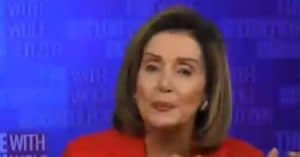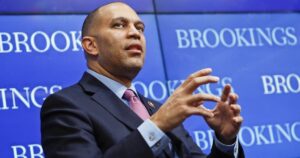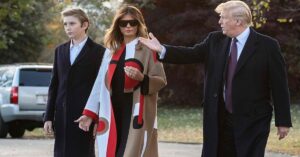Bill Clinton's Lighthearted Tribute to Ethel Kennedy Turns Heads
In a memorable eulogy at Ethel Kennedy's funeral, former President Bill Clinton recalled anecdotes that sparked mixed reactions among those present. Clinton's remarks at the funeral, held in Washington, D.C., were particularly notable for their light-hearted tone amidst the somber occasion.
His stories, interspersed with personal reflections, drew attention from political figures and the Kennedy family alike.
Ethel Kennedy, who passed away at age 96 following a stroke, was remembered by family and friends gathered in Washington. Her passing was marked by a significant turnout that included prominent political figures such as President Joe Biden and former President Barack Obama. Notably, the event was attended by her family, with Robert Kennedy Jr. and his wife Cheryl Hines present amid ongoing family tensions regarding his political stances.
Clinton's eulogy stood out for its blend of fond memories and affectionate humor. He described Ethel Kennedy as someone who had a vibrant spirit, calling her "the cat’s meow" in his speech. This phrase captured the joyful personality she was known for, making those in attendance reminisce about her charismatic nature.
Clinton's Remarks Stir Reactions at the Service
The former president also shared humorous moments, recounting how Ethel Kennedy would "flirt" with him in a manner he described as innocent. His anecdotes, including a light-hearted jab about her having 11 children, were met with varied responses. While some appreciated the levity, others found the comments unexpected given the setting.
Ethel Kennedy's life was one of remarkable family involvement and legacy. She was a mother to 11 children, grandmother to 34, and great-grandmother to 24. Her son, Robert Kennedy Jr., highlighted this extensive family network during the funeral services. These aspects of her life were celebrated alongside Clinton's personal anecdotes.
The funeral, while honoring her legacy, was set against a backdrop of recent controversies surrounding Clinton himself. His involvement in past scandals resurfaced in the days leading up to the event. Allegations related to Monica Lewinsky and connections with Jeffrey Epstein have continued to shadow his public appearances.
Scrutiny Intensifies Over Clinton's Recent Comments
Clinton's recent remarks, unrelated to the funeral, have drawn criticism and media attention. He incorrectly attributed the blame for the murder of Laken Riley and discussed a bipartisan immigration bill inaccurately, citing former President Donald Trump’s role. These errors occurred while campaigning for Vice President Kamala Harris in Georgia, further adding to the scrutiny.
The missteps in Georgia were not the first time Clinton faced backlash. Court documents had previously highlighted his relationships with Epstein and Ghislaine Maxwell, labeling him as a notable figure in their lives. These revelations maintain their significance as Clinton continues his public engagements.
Despite these challenges, Clinton praised Vice President Harris’s immigration policies and sought to draw contrasts with Trump. "You got a case in Georgia not very long ago," he said, pointing to a recent incident involving an immigrant. His comments during the eulogy thus fell into a complex timeline of public discourse.
Funeral Event Highlights Influential Attendees
The presence of current and former presidents at the funeral underscored Ethel Kennedy's legacy and the influence of the Kennedy family in American politics. Yet, conspicuously absent were Donald Trump and George W. Bush, adding an element of political nuance to the gathering.
In a separate statement, Clinton praised the Kennedy family's enduring impact, stating, "We need more people like you" as he concluded his tribute. Such remarks underscored his gratitude and admiration for the family, despite the controversies surrounding his political and personal life.
The funeral provided a moment for reflection on Ethel Kennedy's tremendous life and impact. For attendees, it was a chance to celebrate her contributions to her family and society at large. Clinton's anecdotes, while unconventional, captured a unique facet of Ethel's interactions with those around her.
As the political environment continues to evolve, the legacies of figures like Ethel Kennedy and their interactions with former leaders like Bill Clinton remain points of discussion. This nuanced intersection of memory and commentary compels a broader consideration of their roles in shaping contemporary history.




